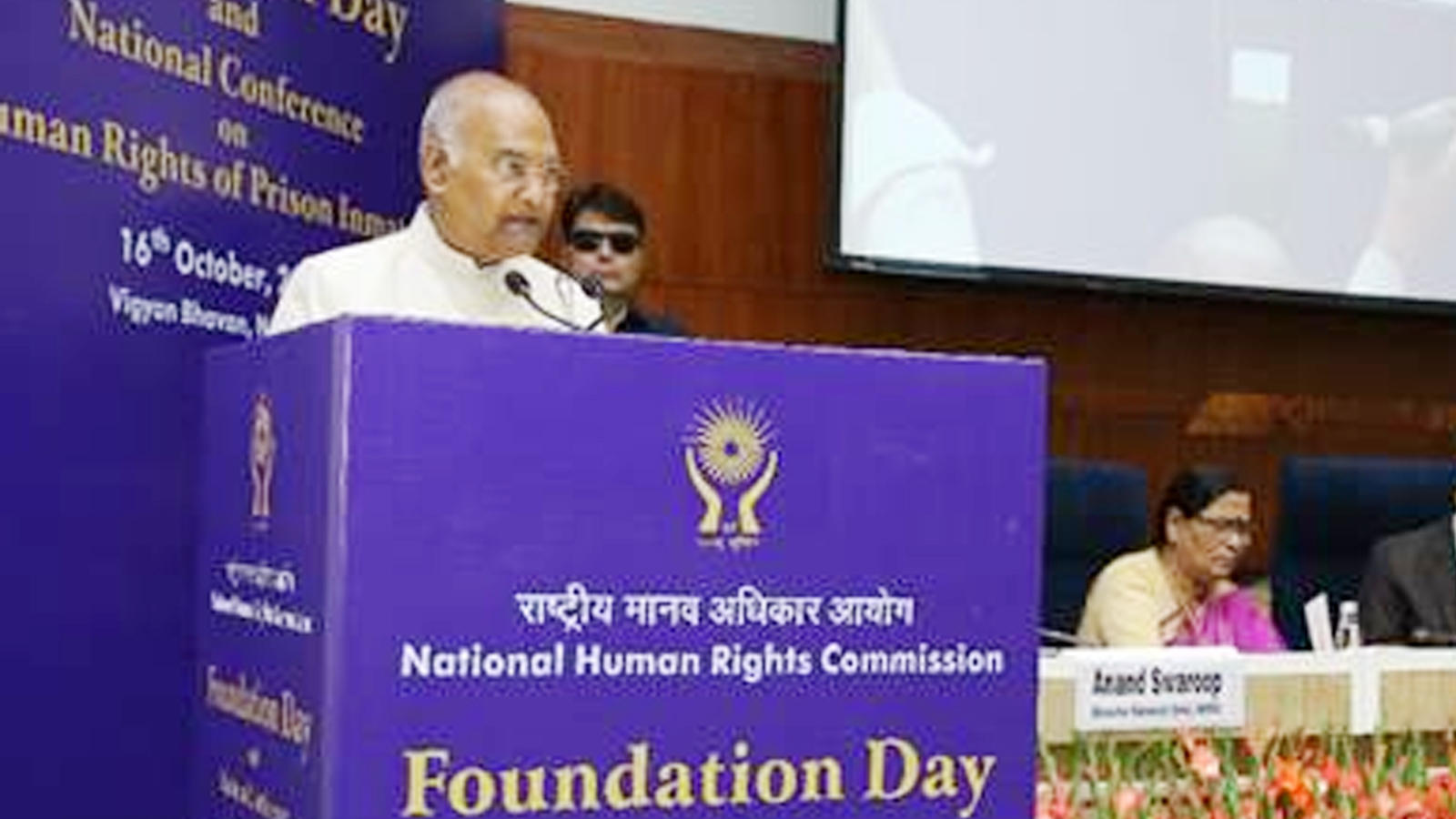The National Human Rights Commission (NHRC) on Thursday marked its 32nd Foundation Day with a special function and a National Conference on “Human Rights of Prison Inmates” at Vigyan Bhawan, New Delhi. Addressing the event as Chief Guest, former President Ram Nath Kovind underscored that the protection of human rights is not merely a legal obligation but a spiritual and moral imperative deeply rooted in India’s civilisational ethos.
“Long before the modern articulation of human rights, our sages and scriptures spoke of the duty to uphold dharma, act with compassion and ensure justice. This ethical foundation continues to guide us even today,” Kovind said, stressing that the true measure of society lies in how it treats its most vulnerable members.
Kovind lauded India’s progress in building a robust human rights framework over the past three decades but cautioned against emerging challenges in an era of rapid technological and societal change. He pointed to the plight of workers in the informal sector – drivers, sanitation workers, construction labourers, and migrant workers – whose rights are often compromised due to unsafe working conditions and lack of social protection.
“As their labour sustains our growth, their welfare and dignity must measure our success. Economic progress must always walk hand in hand with human dignity,” he said.
The former President also highlighted the impact of climate change on human rights, particularly through migration and displacement, and called for recognising mental health as an essential human right.
Reflecting on the theme of the day, Kovind said the treatment of prison inmates is a litmus test for a society’s values. “Prisons should not be merely places of confinement but spaces of reform, rehabilitation and hope,” he said, urging prison authorities to ensure basic courtesies and dignity for inmates.
He commended the NHRC for organising a national conference to promote gender-sensitive and child-friendly practices in prisons and called upon stakeholders to create pathways for inmates’ reintegration into society as responsible citizens.
Kovind also praised the government’s efforts to improve citizens’ quality of life through access to sanitation, electricity, healthcare, education, and housing, as well as landmark legislations like the Mental Healthcare Act, 2017 and the Transgender Persons (Protection of Rights) Act, 2019.
In his address, NHRC Chairperson V. Ramasubramanian highlighted the Commission’s achievements since its inception in 1993. Over the past 32 years, NHRC has handled more than 23 lakh cases and recommended monetary relief exceeding ₹263 crore in over 8,000 cases. In the last year alone, it disposed of more than 38,000 cases and recommended over ₹9 crore in relief.
The Commission, he said, has collaborated with institutions to raise human rights awareness and constituted 12 core groups of experts, NGOs, and government functionaries to strengthen policy evaluation and make targeted recommendations. He also shared that discussions with global human rights bodies have paved the way for a proposed forum of NHRIs from the Global South.
Earlier, NHRC Secretary General Bharat Lal described the Commission as the “conscience keeper of human rights in our democracy,” highlighting efforts to enhance accessibility and capacity building. Citizens can now file complaints online in 22 languages through the Human Rights Commission Network (HRCNet), linked to over five lakh Common Service Centres across the country.
Lal noted that NHRC has also increased its international engagement through forums such as the Global Alliance of National Human Rights Institutions, Asia Pacific Forum, and Commonwealth Forum of National Human Rights Institutions. He pointed out that India’s unopposed election to the United Nations Human Rights Council for the 2026–2028 term underscores the nation’s global commitment to human rights.
Concluding his address, Kovind reminded the gathering that “rights come with duties” and urged citizens, institutions, and governments alike to work collectively to ensure justice, equality and compassion are not just ideals but lived realities.
Senior officials, judges, members of state human rights commissions, human rights defenders, researchers, and prison authorities attended the event. The Commission is also hosting a day-long national conference on the human rights of prison inmates to explore reforms and best practices.














